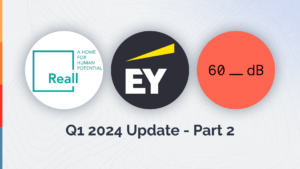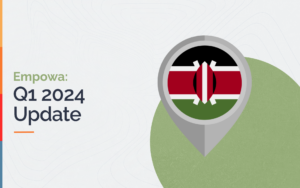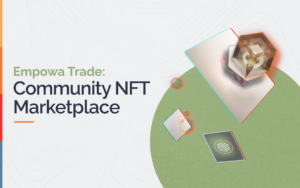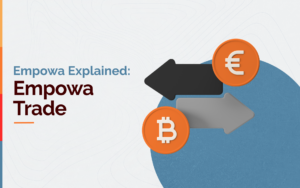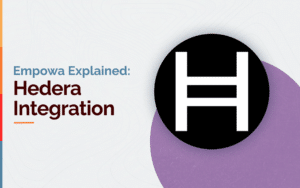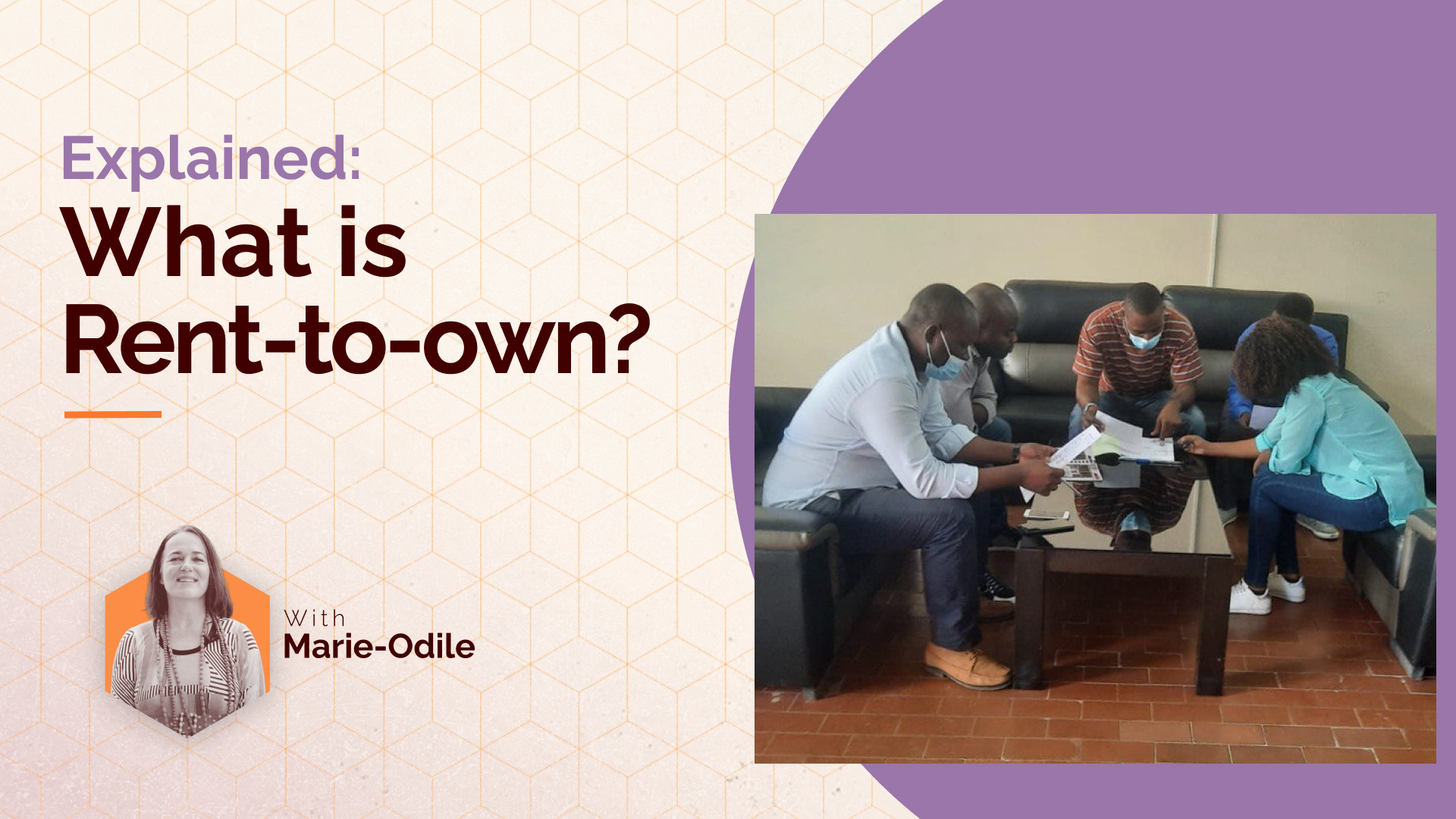
Successfully tackling the backlog of 50 million affordable homes in Africa is going to require the combined efforts of a number of innovations. To date, we have discussed the added value of using blockchain in realising this vision. What has received less attention is the innovative home loan structure that Empowa is pioneering for affordable housing in developing markets.
The structure in question is known as rent-to-own. The standard financial product to acquire a home in most countries is the mortgage, but this product has not been successful in Africa. Across sub-Saharan Africa, mortgage portfolios cover less than 5% of a country’s GDP on average, making it almost impossible for many people to access the housing market through this financial product. Even Kenya, one of the better-performing economies on the African continent, has a relatively low mortgage uptake of roughly 26,000 mortgages against a total adult population of around 23 million people.
The mortgage is a product that emerged from developed economies and relies on the functional working of many formal systems – from identification to proof of income through formal employment. It is estimated in the developing world that up to 80% of income is informal. This means that such income is neither measured nor recorded, so the vast majority of African consumers do not have a financial track record. A mortgage is also based on the predictable payment of fixed amounts over long periods. Informal income is not necessarily predictable and can vary significantly over time. These two major factors mean that the vast majority of Africans are excluded from the housing market and this is evident from the very low number of mortgages in Africa and the vast backlog in housing. This presents a significant opportunity for Empowa to use new technologies to create a new financial product that meets these market needs.
Rent to own is a forward-looking mechanism that allows people to put in the money they earn as they go – think of a pay-as-you-go mortgage. As transfer only happens at the end of the process, less financial history and paperwork is required. Under the rent-to-own system, families rent the house for a set period. During this period they are expected to make additional ad-hoc lump sums to contribute to the ownership of their home – we refer to this as their equity in the home. This allows the client to live in the home as a tenant while they work towards ultimately owning the home through their equity payments. This approach takes into account the informality of income and is more relevant to the real emerging market needs. This approach is not completely new – it has been done before in the unsecured lending market – Empowa is now applying it to the home-loan market.
Benefits for tenants
- Tenants are able to enjoy the benefits of living in a safe, quality home while they pay it off. Without Empowa, those who can least afford it are expected to live in one home and save for another
- Rent-to-own factors in the realities of emerging market family incomes
- As transfer only happens at the end of the process, there is less risk so less documentation and credit rigour is required. This significantly broadens financial inclusion at least risk
- The required documentation is easier to obtain especially in markets with dysfunctional record keeping
- Tenants can, if needed, use the saved-up equity to cover rent payments in the case of emergencies – again a very real requirement for those who have the least economic resilience
- Payments toward a formal rent-to-own contract helps to build a credit score, which can be recorded on the blockchain.
Benefits to the property developer
- In functional housing markets, property developers are able to raise funding for construction knowing that they will be able to sell their development because consumers have access to home mortgages
- In developing markets where there is no such funding, there is no home loan market. Very few customers have the savings or the access to funds to pay for the house in full, so developers struggle to sell their completed homes
- Because there is no guarantee of off-take property developers then struggle to raise funding for construction as funders are concerned about the ability to sell the finished unit
- This lack of market creates the environment where there is no effective affordable housing market across the continent
- By providing rent-to-own home loans, Empowa ensures that the developer can be successful if they develop an affordable product that meets market needs
Benefits to Empowa
- Empowa does not fund the construction of homes, we finance the rent-to-own home loan.
- This removes the risk of construction. In any housing project there are delays, scope creep and increased costs of development. By financing the off-take we sidestep this risk only deploying capital when the home is built and ready to be occupied. With Empowa financing the off-take, the developer can more easily mobilise construction financing.
- This also reduces the time from when capital is deployed to when the developer is expected to start servicing the debt.
- Empowa extends its funding through in-country partners. This means that while it is the partner who is responsible for servicing the debt, the repayments are spread amongst a number of families. This significantly reduces risk.
- Finally, rent-to-own protects Empowa from financing poorly planned housing projects. Africa is littered with failed housing projects, either due to poor construction, lack of market fit or undesirable location. In such cases, potential homeowners will not buy these homes. By only funding homes with a willing buyer, Empowa can be assured the housing on offer matches the buyer’s requirements.
Rent to own is a forward-looking mechanism that takes into the account the reality of informal income in developing economies. It is an incredibly valuable tool for people who are currently excluded from financial systems as they do not have a strong formally registered financial track record, to build a financial track record over time and purchase their own home.
Offering this to customers in a developing market is one of the innovations Empowa is rolling out to address this $1 trillion earn-with-impact opportunity.

